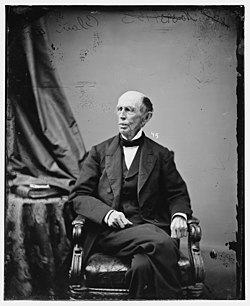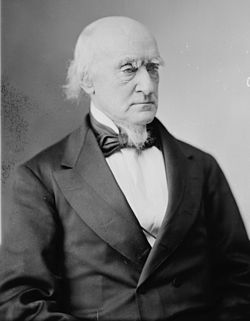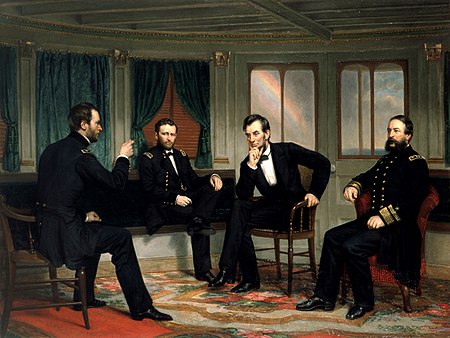 |
| Francis Blair |
As the bloody Civil War raged on into 1865,
nearly everyone on both sides longed for peace. There were some who
believed that peace could be reached through negotiation, without one
side winning a complete victory. One of these was Fancis Preston
Blair, a northern politician and journalist who had close personal
relations with many in the Confederate government. With Lincoln's
permission, he traveled to Richmond in January, 1865 to propose a
peace conference. Jefferson Davis was interested, if only to harden
the Confederacy's resolve by showing that a negotiated peace was not
possible. However, a major issue soon surface. Davis wrote to Lincoln
that he was ready to receive a c omission “with a view to secure
peace to the two countries.” Lincoln told Blair that he would
receive any agent that Jefferson Davis “may informally send to me
with a view to securing peace to the people of our one common
country.” For Davis, the Confederacy's independence was
non-negotiable, but Lincoln would only consider a proposal that
resulted in a unified country.
 |
| Alexander Stephens |
Blair, with help from Grant, was able to smooth
over this difference, and a Peace Conference met. It was held on
February 3rd, 150 years today, on the Union steamer River Queen off Fort Monroe, Virginia. Representing the Union was
Abraham Lincoln and Secretary of State William Seward. From the
Confederacy was vice-president Andrew Stephens, who had broken with
Davis and pushed for a speedy peace, Senator Robert Hunter of
Virginia and John Campbell, former US Supreme Court Justice and
Confederate Assistant Secretary of War.
 |
| John Campbell |
Stephens opened the meeting by discussing the
French invasion of Mexico. One of Blair's suggestions was the country
could be reunified if the Civil War was halted with an armistice, and
north and south united in sending an expedition to repel Napoleon
III's invasion of Mexico. Lincoln, however, quickly cut him off, and
turned to the question of sovereignty. Would there be one country or
two? It was instantly apparent that the conference was useless. As
John Campbell wrote, “We learned in five minutes that [Blair's]
assurances to Mr. Davis were a delusion, and that union was the
condition of peace.” Neither side would yield upon this crucial
point.
 |
| Seward |
The conference continued some time longer, with
a discussion of slavery, a proposal from Lincoln to compensate to the
south for their slaves, and whether if the southern states
immediately surrendered they could reject the 13th
Amendment. The one result of the convention was that Lincoln promised
to recommend that Grant reopen prisoner exchanges.
 |
| The River Queen |
The main product of the meeting was propaganda
material for both sides. Jefferson Davis could tell the South that he
had tried his best to arrange a peace with the North, but they only
terms they offered was absolute surrender. The Confederacy's only
hope was to fight to the end. Abraham Lincoln could say that the
south still remained unwilling to compromise on their independence,
and the Yankee troops needed to fight the war to the finishing,
reaping the complete fruits of victory with the abolition of slavery.
 |
| Lincoln on the River Queen several weeks later |








0 comments:
Post a Comment